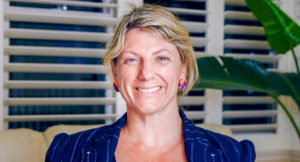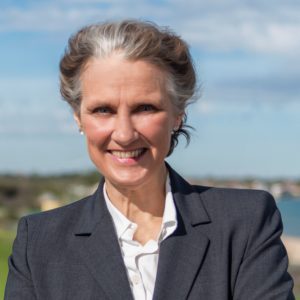Do you have an issue you’re passionate about? Something you see that you want to fix, but you’re not sure how to go about it? Come along to our “how to” session to find out how you can use your position as a medical student and future doctor to create change. See how each of our three speakers went from one person with an idea to making a real difference. Featuring Dr Sara Townend, author of the 2018 open letter to transfer a refugee from Nauru for medical care, Nobel Peace Prize winner Dr Margaret Beavis and Dr Nico Clark, Medical Director of Melbourne’s first Medically Supervised Injecting Centre.
Speakers:
 Dr Sara Townend
Dr Sara Townend
Dr Sara Townend is an experienced GP working in Sydney at the new Northern Beaches Hospital. She is the author of the “Open Letter to Peter Dutton” that 2300 doctors signed in 4 days to transfer a refugee from Nauru to Australia for medical care in June 2018. This year Dr Townend led a grassroots campaign to mobilise the medical community to support the successful medical transfer bill. She is a member of Doctors for Justice where she promotes excellence in health care for all groups, without regard for race, religion, age, gender or ability.
 Associate Professor Nico Clark
Associate Professor Nico Clark
A/Prof Nico Clark is an addiction medicine specialist who brings extensive national and international experience to his position as Medical Director at Victoria’s first Medically Supervised Injecting Room, at North Richmond Community Health. He is an Associate Professor at the University of Adelaide, and has served as Clinical Director for Drug and Alcohol Services South Australia (DASSA) and as a Director at the WHO Collaborating Centre for Research in the Treatment of Drug and Alcohol Problems. The Richmond centre has faced backlash and criticism from many community, government, and media outlets. Nico has been instrumental in fighting for and ensuring the longevity of this initiative.
 Dr Margaret Beavis
Dr Margaret Beavis
Margaret Beavis is a Melbourne GP who joined the Medical Association for Prevention of War after recognising the huge (often preventable) loss of life and environmental devastation caused by warfare. Her interests include climate change, the creeping militarisation of Australia and the undue influences affecting political decision making. All too often political expediency overrides good decisions. Working with MAPW gives her an opportunity to advocate for practical measures that will reduce conflict. She is secretary of MAPW and Co-chair of the International Campaign to Abolish Nuclear Weapons (Australia). She tutors MD1s and lectures in the MPH course at Melbourne University.
